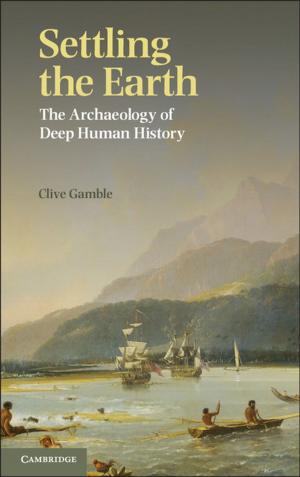An Introduction to the Philosophy of Art
Nonfiction, Religion & Spirituality, Philosophy, Aesthetics, Art & Architecture, General Art| Author: | Richard Eldridge | ISBN: | 9781139862196 |
| Publisher: | Cambridge University Press | Publication: | March 6, 2014 |
| Imprint: | Cambridge University Press | Language: | English |
| Author: | Richard Eldridge |
| ISBN: | 9781139862196 |
| Publisher: | Cambridge University Press |
| Publication: | March 6, 2014 |
| Imprint: | Cambridge University Press |
| Language: | English |
An Introduction to the Philosophy of Art is a clear and compact survey of philosophical theories of the nature and value of art, including in its scope literature, painting, sculpture, music, dance, architecture, movies, conceptual art and performance art. This second edition incorporates significant new research on topics including pictorial depiction, musical expression, conceptual art, Hegel, and art and society. Drawing on classical and contemporary philosophy, literary theory and art criticism, Richard Eldridge explores the representational, formal and expressive dimensions of art. He argues that the aesthetic and semantic density of the work, in inviting imaginative exploration, makes works of art cognitively, morally and socially important. This importance is further elaborated in discussions of artistic beauty, originality, imagination and criticism. His accessible study will be invaluable to students of philosophy of art and aesthetics.
An Introduction to the Philosophy of Art is a clear and compact survey of philosophical theories of the nature and value of art, including in its scope literature, painting, sculpture, music, dance, architecture, movies, conceptual art and performance art. This second edition incorporates significant new research on topics including pictorial depiction, musical expression, conceptual art, Hegel, and art and society. Drawing on classical and contemporary philosophy, literary theory and art criticism, Richard Eldridge explores the representational, formal and expressive dimensions of art. He argues that the aesthetic and semantic density of the work, in inviting imaginative exploration, makes works of art cognitively, morally and socially important. This importance is further elaborated in discussions of artistic beauty, originality, imagination and criticism. His accessible study will be invaluable to students of philosophy of art and aesthetics.















